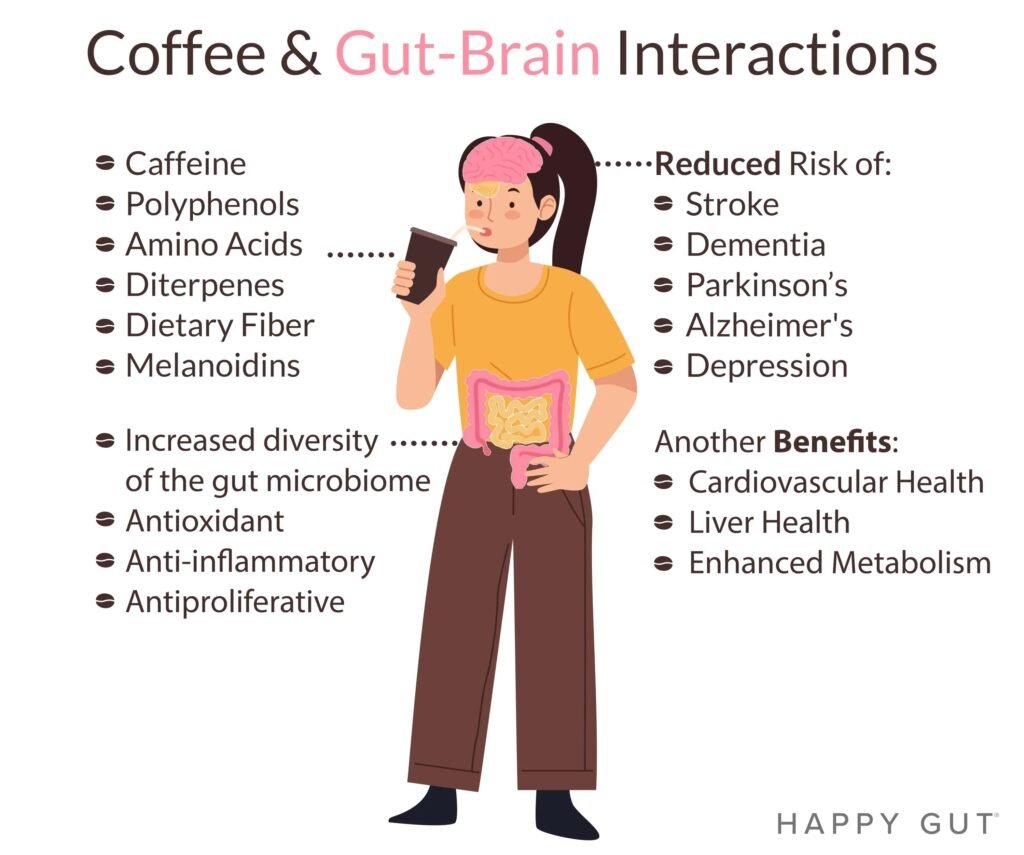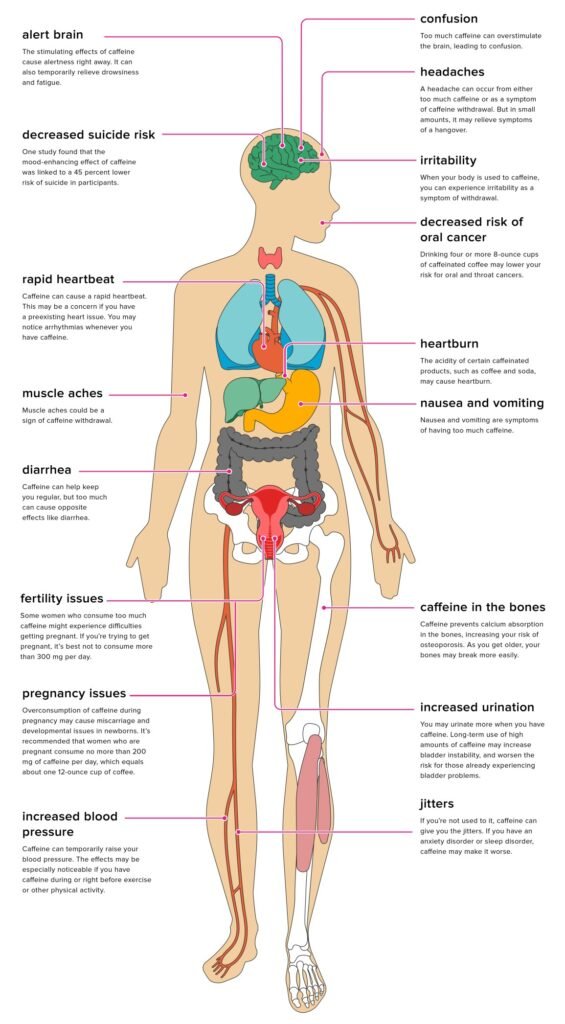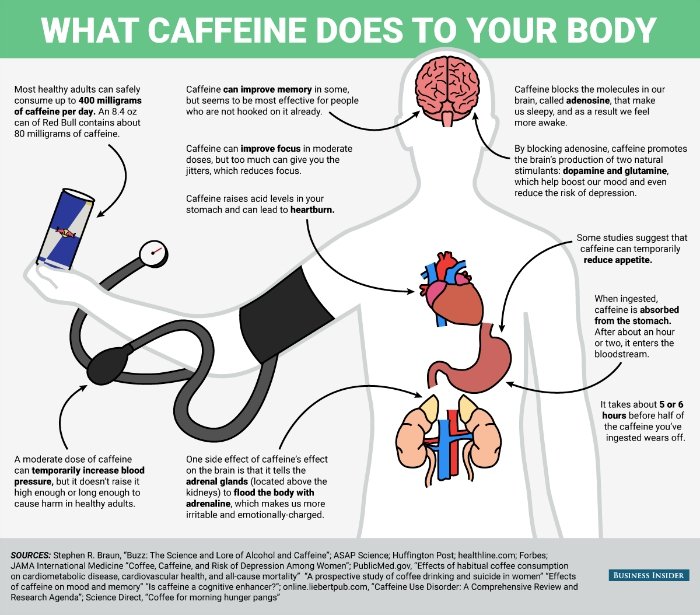Have you ever considered what harm coffee might do to your body?
The Hidden Dangers of Coffee for Your Body
While coffee is cherished by many for its energizing effects and rich flavor, it’s important to recognize that it may not be as benign as it seems. This beloved beverage can potentially carry adverse effects on your health. Let’s unpack how coffee might be causing more harm than good.

The Impact of Caffeine on Your Nervous System
Caffeine, the primary active component in coffee, is known to stimulate the central nervous system. This provides the immediate boost in alertness and energy that so many people crave. However, this stimulation can also lead to a series of negative outcomes.
Anxiety and Insomnia
If you consume coffee excessively, the stimulating effects of caffeine can leave you feeling jittery and anxious. Caffeine blocks adenosine, a neurotransmitter responsible for relaxation, which in turn can make it hard for you to wind down and fall asleep. Chronic insomnia caused by regular coffee consumption can lead to a host of other health issues, like reduced cognitive function and mood disorders.
Effects on Digestive Health
While you might enjoy the digestive pick-me-up that comes with your morning cup, coffee can be hard on your gastrointestinal system.
Stomach Acid and Heartburn
Coffee is acidic in nature and stimulates acid production in your stomach. This increased acidity can lead to heartburn and indigestion, especially if consumed on an empty stomach. Over time, the consistent acidic load can damage the lining of your stomach and esophagus, contributing to chronic gastroesophageal reflux disease (GERD).
| Coffee Component | Effect on Stomach |
|---|---|
| Caffeine | Increases stomach acid |
| Acidity | Irritates stomach lining |
Coffee and Blood Pressure
Your heart and blood vessels are also subject to the impacts of coffee.
Elevated Blood Pressure
Caffeine is known to temporarily raise blood pressure by constricting blood vessels and stimulating the heart. While this might be a minor concern for those with normal blood pressure, it can be dangerous for anyone with hypertension. Over time, the repeated spikes in blood pressure can contribute to the long-term risk of cardiovascular diseases.
Nutrient Absorption
Coffee, especially if consumed in large amounts, can interfere with your body’s ability to absorb essential nutrients.
Calcium and Iron Absorption
High coffee consumption has been linked to reduced absorption of minerals like calcium and iron. This effect can be particularly concerning for individuals at risk of osteoporosis or anemia. Caffeine’s diuretic properties cause you to excrete more minerals through urine, further exacerbating the problem.
| Nutrient Affected | Impact on Absorption |
|---|---|
| Calcium | Decreased absorption |
| Iron | Decreased absorption |

Coffee and Dehydration
Caffeine’s diuretic effect means it causes you to lose more fluids through urination.
Mild Dehydration
Drinking coffee regularly, especially without compensating by drinking enough water, can lead to mild dehydration. Dehydration affects every system in your body, leading to symptoms like dry skin, headaches, and reduced kidney function.
Potential for Dependence
One of the most insidious issues with coffee is its potential to lead to dependence.
Caffeine Addiction
Your body can develop a tolerance to caffeine, meaning you’ll need more of it to achieve the same stimulating effects. As dependence grows, quitting coffee can lead to withdrawal symptoms, including headaches, fatigue, and irritability, making it hard to reduce or eliminate consumption.

The Sugar and Creamer Factor
Many who drink coffee add sugar, cream, or flavored syrups, which can introduce additional health risks.
Added Sugars and Fats
Sweetened and flavored coffee drinks can be calorie bombs packed with unhealthy fats and sugars. Over time, excessive consumption can contribute to weight gain, poor blood sugar control, and increased risk of type 2 diabetes.
| Additive | Potential Harm |
|---|---|
| Sugar | Weight gain, diabetes |
| Creamer | Increased fats |
Conclusion
While coffee has its benefits and certainly can be enjoyed in moderation, it’s crucial to be aware of its potential harms. From elevating your blood pressure to causing digestive issues and nutrient deficiencies, there are several reasons to reconsider your coffee habits. By understanding these risks, you can make more informed choices about how much coffee is right for you.
Always remember, being informed about your dietary choices helps you lead a healthier, more balanced lifestyle.

